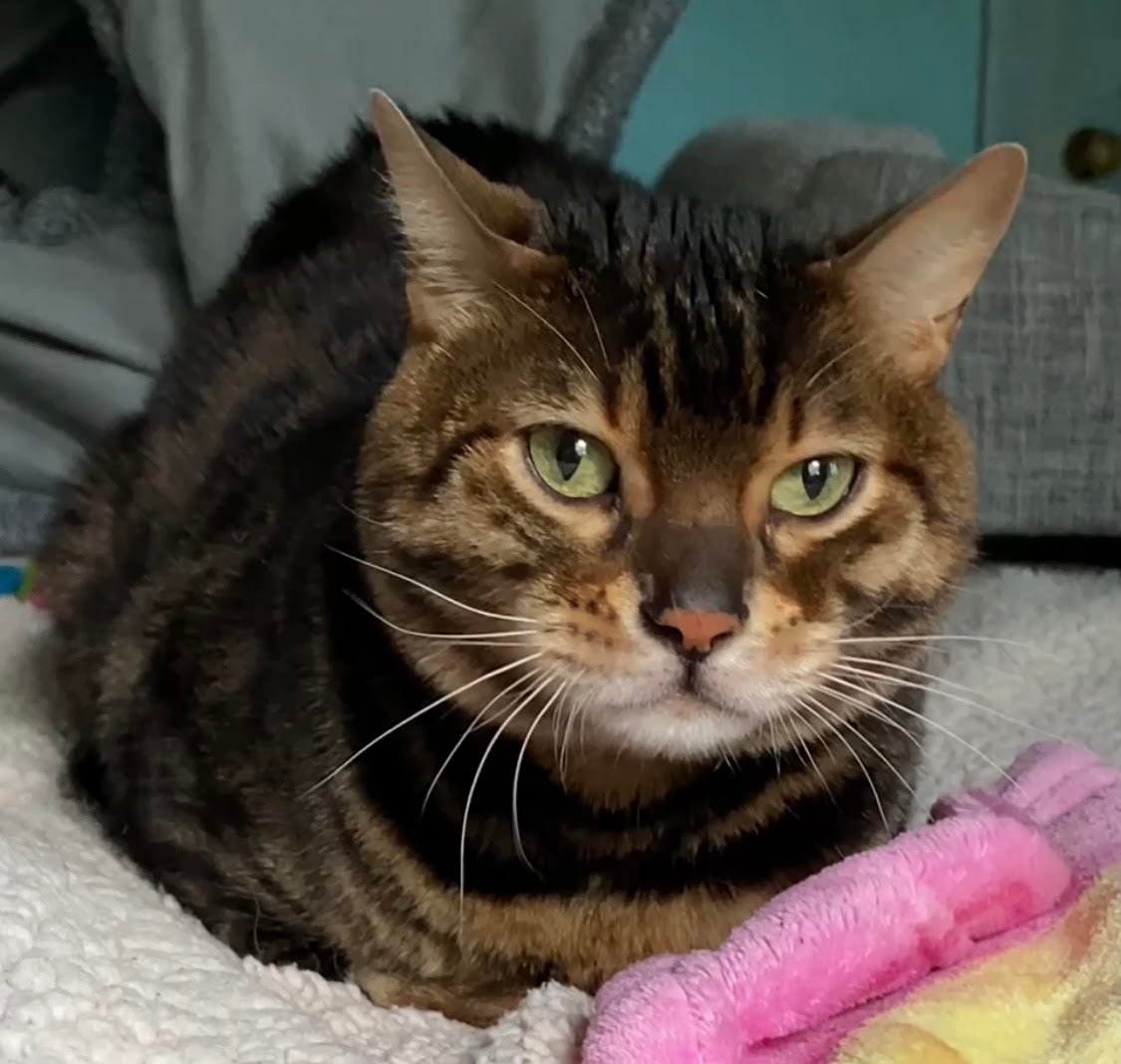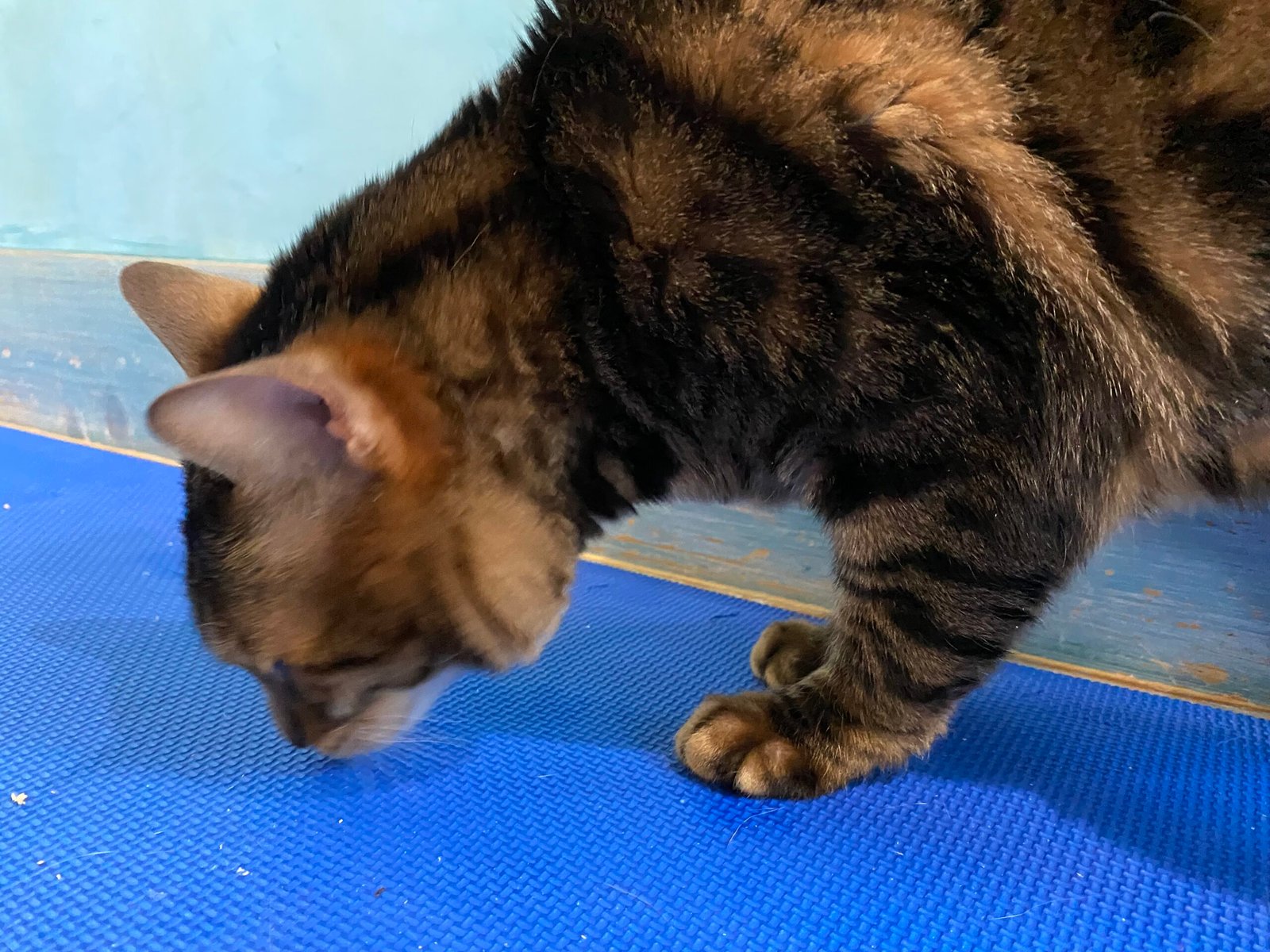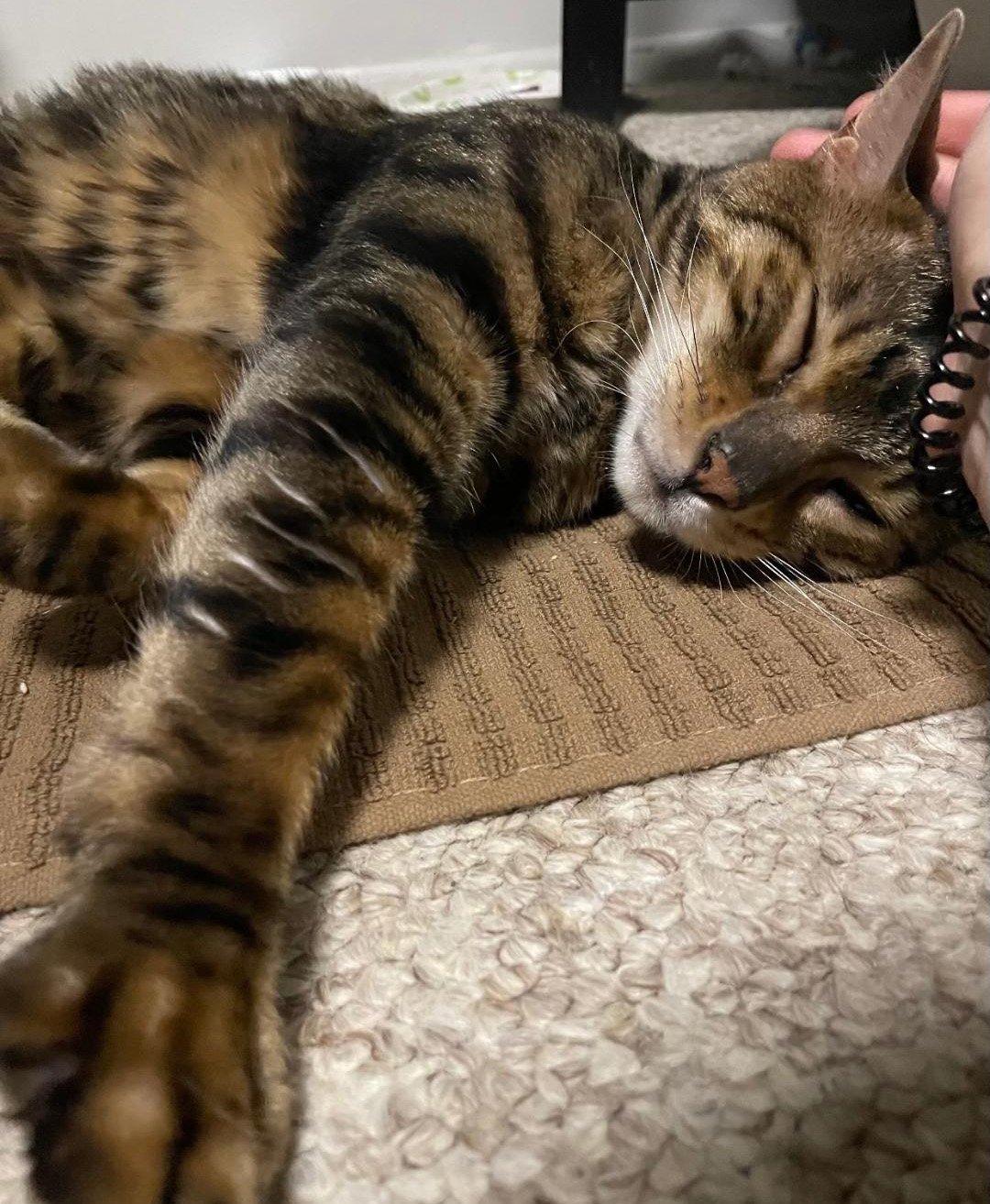July 15, 2021
Story by Lena Gershenov, Animal Behaviorist, New York. Instagram- PetsNCharge
Many people adopt a feline companion without knowing much about their needs and care.Veterinarians are trusted without hesitation.
The heinous procedure that many vets continue to recommend to clients is declawing.
It’s barbaric but remains a huge revenue-generator and easy to market as a non-invasive way to protect your furniture and make a cat easier to handle. What many people don’t understand is how critical claws are to a cat’s well-being and that removing them causes physical and behavioral issues.
This is what happened to Magnus, a Bengal cat who was adopted in 2016 by a couple who were first time pet owners. 
Hybrid cats such as these are not for the inexperienced. If unprepared, people can misinterpret normal Bengal sounds and behaviors as being aggressive.
In Magnus’ case, he was taken to a vet who advertised as an exotic cat specialist but mishandled him in every way.
First by putting him on a diet that caused constant intestinal issues. (hybrids are Obligate Carnivores).
Then the vet talked the owner into having Magnus declawed because he was a hybrid. Within months after the declawing, Magnus began limping on his left paw and exhibiting behavioral problems common to declawed cats.
His owners complained about inappropriate peeing, not understanding that stepping into a litter box of sharp clay litter was like walking on glass to a declawed cat. He also started biting (of course, he did — he was in pain!).
The vet tried to cover up his botched declawing by labeling Magnus with behavioral Issues and prescribing ever-increasing amounts of Prozac.
The declawing vet also recommended Magnus be kept in a dark, quiet space where for the next five years he had very little interaction because his owners were now afraid of him. He was not picked up, cuddled or loved; he simply existed in this small room with hard floors, a box filled with clay litter and a small amount of dry food that did not provide him with adequate nutrition.
In June 2021, his owner decided to surrender her aggressive hybrid cat.
That’s when I was called to foster Magnus. As an animal behaviorist who has worked with feral cats — and hybrids — for over 35yrs, the rescue group that contacted me knew this would be his best chance of being correctly assessed and rehabilitated.
Before Magnus arrived I reviewed his medical records to get a better picture before meeting him. It was so clear that this was a case of bad declawing. In an effort to get more details since his file was missing the surgical notes and all the pages pertaining to the declawing, I followed up and called this vet who readily admitted — despite the procedure being illegal here in NY — that he does hundreds of declaws a year and does a stellar surgical job so it can not be from anything he did. He also said he declaws dogs.
I was certain Magnus’ behavioral issues stemmed from painful declawed paws and Prozac (can make hybrids more aggressive). I knew that I could help him.
Magnus arrived a very angry Bengal. I immediately placed a calm trainer cat with him who is wonderful with scared fosters. Watching her reaction to him said it all
Magnus was in pain and not an aggressive cat. I knew Chloe could offer comfort and teach him to trust again. I coaxed him out of his carrier with a treat so that I could watch him walk. It broke my heart to see him try to maneuver on his wrists in an attempt to avoid the pain of putting pressure on his feet. 
When I first tried to pet him, he did bite, but very lightly. I did not move away, as I needed to convey to him that he could trust me, that I wasn’t going to retaliate or punish him. In order to make him more comfortable, I covered the floor with soft mats and filled the litter boxes with a type of litter appropriate for a declawed cat.
The next day, my vet thoroughly examined Magnus; he was x-rayed to check for bone fragments that can be left behind or regrowth, he was free from these excruciating declaw complication. Magnus was given pain medication to break the pain cycle before starting Gabapentin to alleviate the nerve pain. The Prozac was discontinued(we did not need to ween him as it turns out his owner had not been consistently administering it over the past 2 months).
Providing correct medication and environment led to an incredible and fast transformation! Magnus began moving around, talking and greeting me at the door every morning. He became interested in playing with toys and exploring the cat tree. And, finally, I knew my work with him was finished when he was fully comfortable being picked up and held.
In two short weeks, he went from a miserable, misunderstood cat (that easily could have fallen through the cracks and been euthanized due to being “aggressive”) to a sweet, loving boy ready to find a forever home.
We are hoping that Magnus will be able to live a relatively pain free and happy life in his new home.
He been adopted into a loving home who understand his special needs and will provide endless love to this incredible Cat.
Here’s Magnus in his new home.

